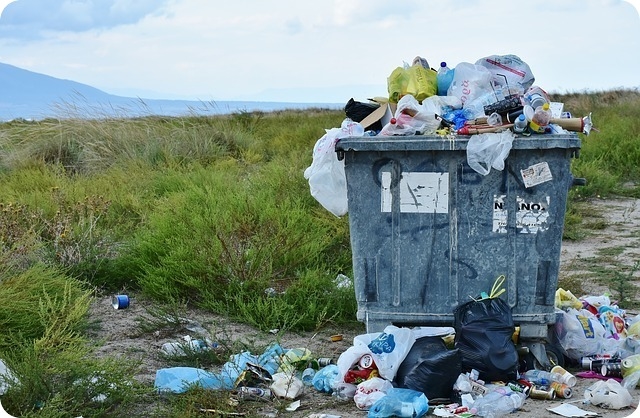5 Ways to Promote Sustainability in Healthcare Foodservice
How to Reduce Waste for Sustainability in Healthcare Foodservice Operations
Did you know that when food ends up in a landfill it releases harmful methane gas which heats the atmosphere and contributes to climate change?
Food is one of the 3 largest sources of waste received by landfills, challenging healthcare foodservice operators to implement programs which ensure the proper disposal of any unused food products. In addition to these programs, healthcare systems are finding impactful ways to reduce waste overall and educate staff on the importance of following sustainable business practices. Here are 5 ways your healthcare foodservice operation can reduce its carbon footprint and promote sustainability.
-
Made-to-Order Meals
Preparing food in large, bulk batches often leads to an overabundance of unconsumed leftovers. Switching to a made-to-order meal system is an effective way to manage portion control and eliminate such large quantities of unused food (which is without a doubt, still destined for a landfill in many non-commercial foodservice operations.)
-
Composting
Compostable products are made of natural materials which don’t produce harmful toxins as they break down. Many cities have programs (like this one, right here in our city of Rochester) where they collect compost from households and businesses and bring it to a specialized facility to efficiently go through the entire composting process. If your city doesn’t have this service, find a community garden where you can bring your compost or create your own on-premise garden.
-
Use “Ugly” Produce
Not all produce grows in the perfect, beautiful shape we expect it to. Use “ugly” food, like misshapen fruits and veggies, or the tips, ends, and stems of produce, to create unique dishes like soups, plant-based menu items, veggie burgers, sauces, smoothies, and homemade condiments. If produce is really past its prime and can’t be utilized in the kitchen, add it to your own compost pile or donate it to local farmers who can use it to feed their animals.

-
Local Sourcing
Purchasing from local farmers and vendors cuts down on the transportation required for delivery, reducing the amount of harmful carbon emissions released into the atmosphere. When healthcare foodservice operators move to local sourcing, they serve fresher, healthier ingredients to their customers and contribute to the growth of their community.
-
Donate to the Community
With rotating dining menus and fluctuating customer demand, it’s possible to have inventory on-hand that is still edible but isn’t scheduled to be utilized prior to its expiration date. Donate these perishable items to local organizations where they’ll be shared with those in need or used to serve meals to the homeless. In 2017, 8% of U.S. households were food insecure at some point throughout the year. Why waste good food when so many people are food insecure?
The initiatives listed above are only a handful of the best practices operators are executing to reduce their carbon footprint and create a healthier environment. What processes and programs have your healthcare foodservice operation implemented to promote sustainability and reduce food waste? Please share in the comment section below!
CaterTrax helps operators reduce food waste with web-based solutions that improve accuracy and eliminate the possibility of costly order mistakes. Click the button to streamline the way you manage your healthcare foodservice operation.


March 27, 2023 @ 12:52 am
This is an incredible and extremely useful source of information. I’m thankful that you provided us with access to this valuable information.